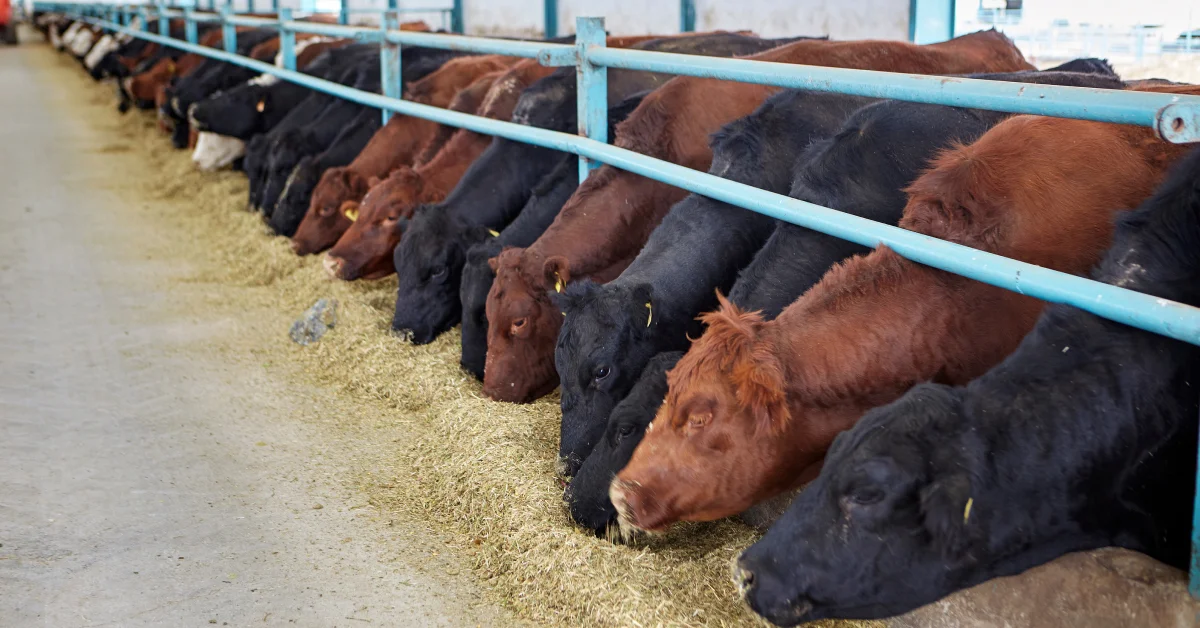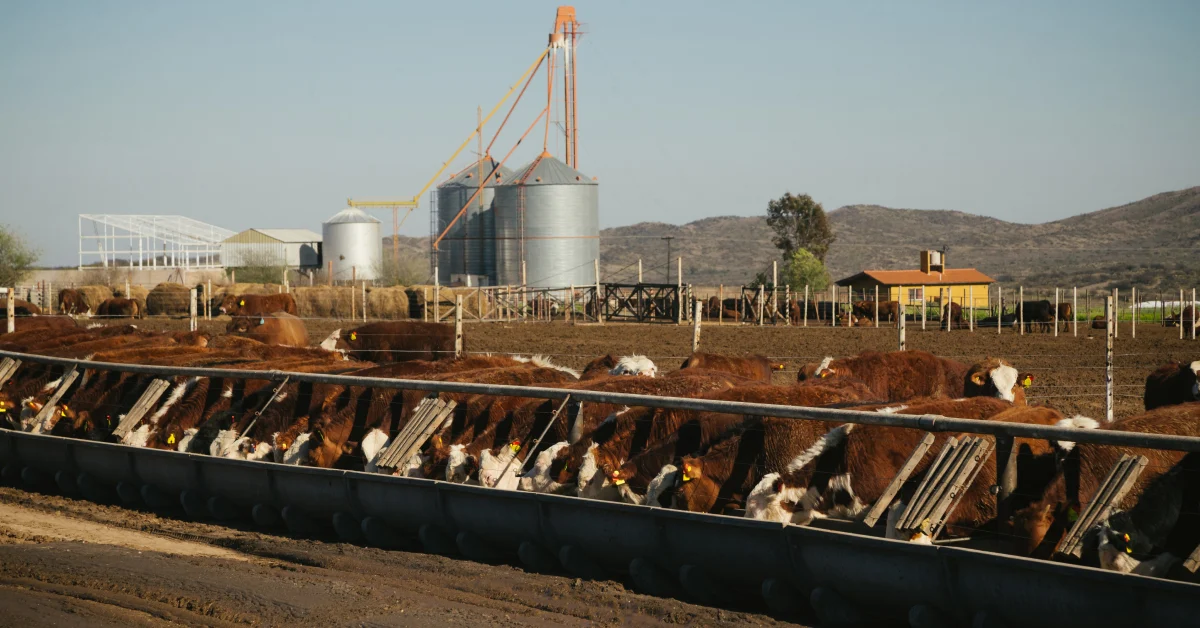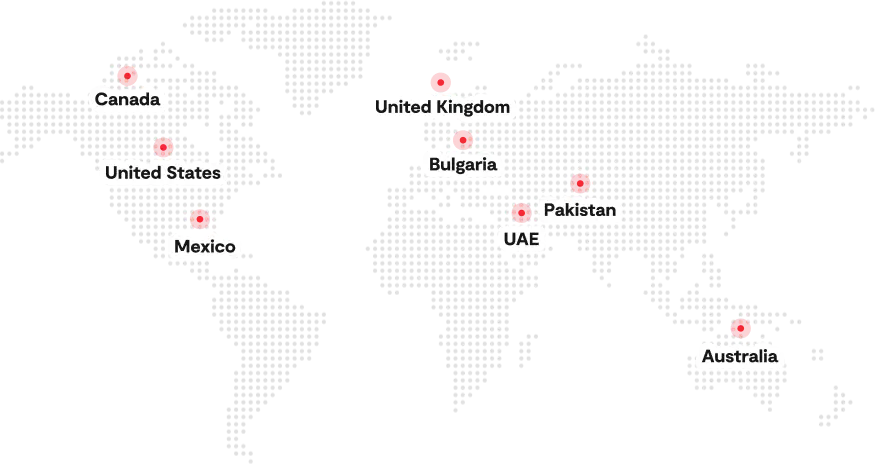In the current multinational business world, product efficient management at all supply chain management links is crucial for businesses to succeed. The very soul of optimization lies in Enterprise Resource Planning (ERP) systems, which are becoming increasingly popular and can automate and coordinate the flow of commodities with different features.
In this blog, we’ll delve into ERP’s transformative role in supply chain management, focusing on its significance in agriculture.
Understanding ERP and Its Role in Supply Chain Management
ERP systems are integrated cultural software solutions that operate finance, human resources, production management, and storeroom control worldwide. However, these influences are not limited to internal operations but also go far beyond them.
In addition, information systems are crucial elements that help smooth the movement of goods and information across multiple systems. ERP systems embrace all these functions, including supply, manufacturing, sale, and customer servicing, and hence improve the supply chain’s visibility, efficiency, and responsiveness throughout its lifecycle.
The cruciality of ERP in agriculture must not be undermined. It incorporates numerous players, beginning at the farmer and ending at the final consumer, including producers, distributors, retailers, and consumers.
With the ERP, agricultural enterprises will be able to properly manage the agro-industrial complexities, as opposed to crop production, livestock management, and food processing industries, and comply with regulatory requirements and market standards.
ERP has assumed the role of a catalyst that drives innovation and growth today. It helps agri-firms operate supply chains efficiently by reducing waste and ensuring traceability across the ranch and at the dinner table.
ERP systems provide the tooling power to identify problems and suggest alternative solutions, enabling the design of sustainable and resilient agricultural supply chains. Forecasting accuracy can be improved to anticipate supply/demand fluctuations and production routes can be optimized to reduce carbon emissions.
The Agriculture Industry’s Supply Chain: An Overview
The starting point of the agriculture sector value chain is its farmers, whose role is not only at the level of crop cultivation and livestock rearing but also encompasses subsequent steps, such as post-harvest processing, packaging, and marketing, in which their knowledge, experience, and expertise are utilized.
These primary producers and other industry segments, including agriculture, operate as a system responsible for growing, harvesting, and nurturing agri-food products to satisfy people and different industries down the supply chain.
When implementing a commodity that is either harvested or produced, it will encounter a complex distribution system in which it is readjusted through processing, packaging, and transportation.
From germination to ripening statistics, traditional manufacturing facilities to distribution centers, wholesalers, retailers, and finally, consumers, every step in a supply chain brings value to products and, of course, additional challenges and complexity.
Challenges Faced by the Agriculture Industry’s Supply Chain
Despite its fundamental role in feeding the world, the agriculture industry’s supply chain grapples with numerous challenges that hinder its efficiency and resilience:
- Seasonal Variability
Agriculture is a seasonal trend that implements production and tendencies. The craziness of climatic conditions and pests affects the good yielding of crops and pasture—this speeds up food prices, either the shortage or surplus.
- Fragmentation and Disparity
The agriculture supply chain can be done without considering the varied participants, e.g., small-scale farmers, giant agribusinesses, processors, distributors, and retailers. The information silos, communication gaps, and inability to pass on the information in the supply chain that arise from this fragmentation too often lead to inefficiencies among the members of the supply chain.
- Quality Control and Safety
Keeping agricultural products safe throughout the supply chain is a vital point of attention. Nevertheless, producing food that stands out in terms of quality tastes, prevents food contamination, and allows the industry to operate lawfully according to all food safety regulations in the global market is a serious challenge.
- Supply Chain Transparency
A transparent and traceable agriculture supply chain is extremely important to create consumer confidence and address environmental and sustainability issues. However, the main problems with tracking products from the farm to the fork are logistical hurdles, especially in complicated supply chains, where interconnections cannot be static. Implementing a logistics app can significantly reduce these hurdles by providing real-time tracking and management of goods as they move through each stage of the supply chain.
The Need for ERP in Supply Chain Management of the Agriculture Industry
Given that the agriculture industry’s supply chain is deeply complicated and has many challenges, endorsed technology tools should enhance visibility, effectiveness, and collaboration throughout the system with its supply chain ecosystem. ERP systems are the platforms on which this process takes place.
ERP solutions in agriculture present a unified and suitable platform for handling and distributing key business processes such as farm management and production planning, inventory control, distribution, distribution channel regulation, and regulatory compliance.
ERP systems provide a timely reaction to market volatilities by supplying stakeholders with augmented visibility representative for the strategic management of critical supply chain data and the proper resource allocation required for decisions with robust mechanisms for processes at optimum levels.
In the context of the agriculture industry, ERP solutions enable:
- Effective Resource Management refers to decreasing hypothetical inputs such as labor, water, and waste (meaning the amount of land, capital, and energy) and time usage and increasing productivity to reduce waste.
- Inventory optimization comprises an inventory level that must be maintained appropriately, with cost control achieved. At the same time, there is no stock experience or losses from storing and spoiling products.
- Compliance Management gives businesses a competitive edge by upholding the desired ethics standards and certifications for food safety, environmental suitability, and labor.
- The main function of the supply chain collaboration is to share knowledge in a timely manner and work with experts who fulfill different roles in the supply chain, such as farmers, suppliers, processors, distributors, and retailers.
- ERP systems optimize logistics by streamlining loading processes, reducing transportation costs, and improving supply chain efficiency. Implementing container and truck loading software ensures real-time tracking, minimizes loading errors, and enhances resource allocation.
Benefits of Using ERP in Supply Chain Management
Below are the top benefits of using ERP in supply chain management, highlighting how they drive efficiency, visibility, and agility across the entire ecosystem.
1. Enhanced Visibility and Control
An ERP system’s visibility should be its primary advantage in supply chains. ERP systems link records with different sources across the entire supply chain, including inventory levels, production status, transportation schedule, and customer demand, and therefore give instantaneous information.
2. Streamlined Operations and Efficiency
ERP systems interweave the fundamental processes of business, unifying order processing, stock control, and procurement, thus automating them. By automating specific tasks and reducing redundant workflows, ERP systems can decrease the time needed to complete tasks, minimize errors, and consequently improve overall operations efficiencies.
3. Improved Collaboration and Communication
ERP creates the framework for smooth collaboration and information sharing between various parties and leads the supply chain management system. Using a single platform for disseminating information and coordinating events, expeditors, manufacturers, and retailers can act more efficiently to ensure that production volumes and inventory levels are in line and to react promptly to fluctuations in demand or supply.
4. Better Decision-Making and Strategic Planning
By placing the information about the supply chain into a single and complex system, ERP platforms offer the stakeholders an extensive range of insights for making decisions and strategic planning. With access to manageable intelligence, decision-makers can predict market rate changes, regulate the stock, collapse risks, and add to opportunities that can boost growth.
5. Compliance and Risk Management
ERP systems help organizations maintain compliance with regulatory standards and mitigate risks throughout the supply chain. ERP ensures adherence to industry regulations, quality standards, and contractual obligations by automating compliance management processes and providing robust audit trails.
Additionally, ERP in supply chain management enables proactive risk identification and mitigation through features such as demand forecasting, supplier performance monitoring, and contingency planning.
ERP as an All-in-One Solution for Businesses
With the advent of ERP systems, all the business aspects have one standard tool that can take care of such aspects individually and are integrated into these systems.
The range of systems covers a broad spectrum – from finance and human resources to manufacturing and supply chain management for effective integration and interconnectivity; the ERP systems use features such as streamlining operations and enhancing visibility in the process, which drives organizational efficiency.
Here’s how ERP in supply chain management serves as an all-in-one solution for businesses:
- Finance and Accounting
The heavily financial-orientated module of ERP systems deals with making payments, taking payments, charting, budgeting, and reporting. Money data becomes a focus, and activities become automated in an ERP. Organizations will be able to keep exact records, make sure of the regulations, and do the best analysis.
- Human Resources
The ERP system includes a complex of modules, especially for HR work, such as payroll deferral, employee benefits administration, performance monitoring, and personnel planning. ERP supports high-performing workforce management, talent acquisition practice, and staff development initiatives through standardizing and establishing integration mechanisms with other HR processes.
- Manufacturing and Operations
One of the ERP functions is to assist in production management, which incorporates the whole manufacturing process from production planning and scheduling to inventory control to quality control. For instance, ERP systems enable companies to manage BOM, track work orders, and predict production levels, which in turn help organizations maximize resource utilization, eliminate waste, and improve the efficiency of production processes.
- Sales and Customer Relationship Management (CRM)
ERP solutions combine sales and CRM functions to assist in managing customer interaction, sales pipelines, and marketing efforts. A central database containing all details of customer relationships and sales activities allows organizations to compose tailored customer experiences, standardize sales processes, and boost revenue generation.
Managing the Supply Chain with ERP
ERP in supply chain management is a core element for planning and optimizing the operational processes related to logistics, information, and resources across the entire spectrum of supply chain links.
Here’s how ERP systems facilitate effective supply chain management:
- Inventory Control and Optimization
ERP systems capture data in real time to present a clear picture of inventory levels, demand forecasts, and supply chain activities. ERP offerings ensure that organizations effectively manage inventory levels, control carrying costs, and prevent stockouts or overstocks by implementing automated inventory management procedures and demand-driven replenishment approaches.
Collaborating with a logistic software development company can further optimize these processes, providing customized solutions that enhance logistics efficiency and improve overall supply chain management.
- Procurement and Supplier Management
Using Enterprise Resource Planning (ERP) solutions, procurement procedures are simplified using supplier selection and sourcing through purchase order management and invoice processing. By integrating a procurement platform, businesses can further streamline these processes, enhancing efficiency and ensuring seamless communication with suppliers. By combining procurement data with inventory and production, ERP empowers businesses to harmonize with their suppliers more accurately, strike favorable bargains, and facilitate the resupply of goods and services.
- Logistics and Distribution
ERP systems improve transportation management and streamline route optimization and warehousing operations. Effective transportation software development services can help companies integrate their transportation processes seamlessly with the ERP system, further optimizing the supply chain. Partnering with a specialized transportation software development company can provide tailored solutions to enhance logistics efficiency, ensuring smoother operations and better resource management throughout the supply chain. ERP software assists companies in fully utilizing their supply chain by reducing transportation costs and optimizing orders; it’s important that ERP software is developed by experts. If your team doesn’t have the right knowledge, you should outsource your work to IT outsourcing services providers so your work can be handled by experts.
- Compliance and Risk Management
ERP solutions help ensure the required regulatory standards, quality specifications, and contractual obligations are applied throughout the supply chain and automate compliance management processes. ERP technology helps organizations combat supply chain issues and develop operational resilience by facilitating traceability, document handling, and risk assessment.
Critical Functions of ERP in Supply Chain Management
ERP in supply chain management is a big package that allows the supply chain components to work well together by simplifying, making it more straightforward, and automating different activities.
Here’s how ERP in supply chain management enables businesses to effectively manage the following:
1. Planning
ERP systems use demand forecasting, production scheduling, and planning to minimize waste, maintain reasonable timeframes, or meet customer demand.
ERP in supply chain management empowers companies to develop precise production schedules, decrease stockouts, and avoid the accumulation of excess inventories by assimilating new sales pipelines, holding stock levels, and production capacity.
2. Procurement
ERP in supply chain management enforces procurement’s superiority, speeding up supplier selection, sourcing, purchase order management, and invoice processing. These systems not only help businesses manage vendor transactions but also simplify invoicing for independent contractors. If you’re wondering how to invoice a company as an individual, ERP solutions can automate the process, ensuring accuracy and timely payments
The centralization of procurement data and the automation of the processes facilitate companies’ communication and negotiation with suppliers and also ensure timely delivery of goods and services.
3. Manufacturing
ERP programs manage all manufacturing aspects, e.g., bill of materials (BOM) and work order tracking. They also aid in production planning by tracking lead times and calculating the capacity of manufacturing processes.
ERP connects manufacturing data with other business processes. This helps firms improve their production efficiency, minimize downtime, and improve product quality.
4. Inventory Management
The primary benefit of inventory management software is that it assists organizations in controlling their inventory adequately, cutting carrying costs, and steering clear of stock shortages or excesses, thanks to automating inventory management processes and implementing demand-driven replenishment strategies.
5. Warehouse Management
ERP systems provide an intuitive environment for all warehouse operations, including incoming and outgoing goods. These also involve selecting and packing, shipping, and stock checks.
ERP boosts The practice of streamlining the layout of storage facilities, minimizing handling costs, and maximizing order accuracy and fulfillment rates by integrating warehouse data with inventory levels and order fulfillment procedures. In some cases, businesses opt for a custom warehouse management system to better align with specific operational workflows not fully addressed by standard ERP configurations.
6. Order Management
ERP systems automate order processing, from order entry and validation to invoicing and payment processing. By centralizing order data and integrating it with inventory and production schedules, ERP enables organizations to streamline order fulfillment processes, reduce order cycle times, and enhance customer satisfaction. Also, incorporating OMS systems can take this efficiency to the next level, ensuring smoother order management.
How Do ERP Systems Enable Coordination, Streamline, and Automation?
ERP in supply chain management enables businesses to coordinate, streamline, and automate supply chain activities through:
- Integration: ERP integrates data and processes across various organizational departments and functions, facilitating seamless collaboration and communication.
- Automation: ERP automates repetitive tasks and workflows, reducing manual intervention and minimizing errors while improving efficiency and productivity.
- Visibility: ERP provides real-time visibility into critical supply chain data, enabling stakeholders to monitor operations, identify bottlenecks, and make informed decisions.
- Standardization: ERP standardizes processes and procedures, ensuring consistency and compliance with regulatory standards and industry best practices.
- Analytics: ERP offers advanced analytics and reporting capabilities, enabling organizations to more accurately analyze trends, identify patterns, and forecast demand.
- Scalability: ERP systems are scalable, allowing businesses to adapt to changing market conditions, accommodate growth, and expand into new markets seamlessly.
The Transformation of the Agriculture Industry’s Supply Chain through ERP
ERP is multifaceted and impactful in transforming the agriculture industry’s supply chain. ERP systems enable real-time tracking and warehouse management, streamlining and automating supply chain activities and improving agricultural efficiency and resilience.
Furthermore, ERP in supply chain management enhances transparency, traceability, and predictive analytics, ensuring compliance and fostering sustainable growth.
The Future of ERP in Supply Chain Management of the Agriculture Industry
Looking ahead, the future of ERP in supply chain management in the agriculture industry is poised for significant transformation. Digital twins, virtual replicas of physical assets and processes, are set to revolutionize supply chain optimization.
ERP systems can leverage digital twins to simulate and optimize various aspects of agricultural operations, from crop cultivation to livestock management. This enables more informed decision-making and resource allocation. Moreover, the proliferation of Internet of Things (IoT) devices in agriculture holds immense potential for enhancing supply chain efficiency.
IoT sensors embedded in fields, equipment, and livestock can capture real-time data on environmental conditions, crop health, equipment performance, and animal behavior. Integrated with ERP systems, this data enables proactive decision-making, predictive maintenance, and optimized resource utilization throughout the supply chain.
In the face of increasing challenges such as climate change, resource scarcity, and evolving consumer preferences, ERP systems will play a vital role in enabling agility and resilience within the agriculture supply chain.
ERP empowers agricultural enterprises to adapt to changing conditions, mitigate risks, and seize innovation and sustainable growth opportunities by providing end-to-end visibility, automation, and analytics capabilities.
How does the Agtech ERP Solution Address the Needs of ERP in Supply Chain Management?
The Agtech ERP Solution is tailored to meet the unique requirements of supply chain management in the agriculture industry. Its innovative features and benefits effectively address agricultural businesses’ evolving challenges.
The Agtech ERP Solution addresses ERP needs in supply chain management by streamlining processes, automating warehouse operations, optimizing procurement management, and offering scalability. It integrates data from farm to fork, ensuring efficiency, visibility, and flexibility to support business growth and resilience in agricultural supply chains.
How Agtech ERP Enables Coordination and Automation?
- Integration: The Agtech ERP Solution integrates seamlessly with existing systems, ensuring efficient operations across all platforms.
- Automation: By automating repetitive tasks and workflows, the solution reduces manual intervention, minimizes errors, and improves overall efficiency and productivity.
- Visibility: Real-time visibility into farm operations is achieved through integrated ERP systems, allowing stakeholders to monitor operations, identify bottlenecks, and make informed decisions.
Case Study: Rombola Family Farms
Problem:
Rombola Family Farms, a prominent agricultural business, faced several challenges hindering its growth and efficiency. These included scaling issues with existing systems, lack of data visibility, insufficient reporting capabilities, manual processes prone to errors, and security concerns.
Need:
Rombola Family Farms required a consolidated and robust Farm Management and ERP solution to overcome these challenges and support their business growth. They sought a solution that could streamline their operations, improve resource utilization, and foster innovation while ensuring compliance with industry standards.
Solution:
Folio3 provided an end-to-end Farm Management and ERP solution powered by Microsoft Dynamics 365 Finance & Supply Chain. This comprehensive solution digitized processes, enhanced data visibility, improved reporting capabilities, and ensured compliance. By addressing these needs, the ERP solution enabled Rombola Family Farms to optimize their operations effectively.
About Rombola Family Farms:
Rombola Family Farms specializes in crop planning, cultivation, harvesting, and distribution. It strongly emphasizes sustainability and delivers high-quality produce. It partnered with Folio3 to implement the ERP solution to achieve its operational efficiency and growth goals.
Conclusion
ERP systems are pivotal in revolutionizing supply chain management, particularly in agriculture. ERP solutions empower agricultural businesses to overcome challenges, drive efficiency, and foster innovation by offering enhanced visibility, streamlined operations, improved collaboration, and better decision-making capabilities.
As technology evolves, ERP’s future in the agriculture industry’s supply chain promises further transformation and resilience to dynamic market conditions and changing consumer demands.
Looking ahead, ERP holds promise for further revolutionizing supply chain management in agriculture, fostering innovation and sustainability.
FAQs
What is the Role of an ERP in Supply Chain Management?
An ERP system’s role in supply chain management is integrating and streamlining essential business processes like finance, supply chain, operations, and human resources into one cohesive platform.
What Are ERP Transformations?
ERP transformations involve strategic shifts to modernize or upgrade ERP systems, altering an organization’s operations and technology infrastructure.
How Will ERP Shape the Future of Supply Chain Management?
ERP shapes the future of supply chain management by providing complete visibility across the network and allowing monitoring of all activities from suppliers to stores.
Is ERP a Digital Transformation?
ERP is integral to digital transformation, unifying business data and enabling automated information flow across departments.
What is the Effective Utilization of ERP in Supply Chain Management and Operations?
Effective usage of ERP in supply chain management and operations provides visibility into how operations contribute to business goals and streamlines processes like ordering, transportation, and distribution.





